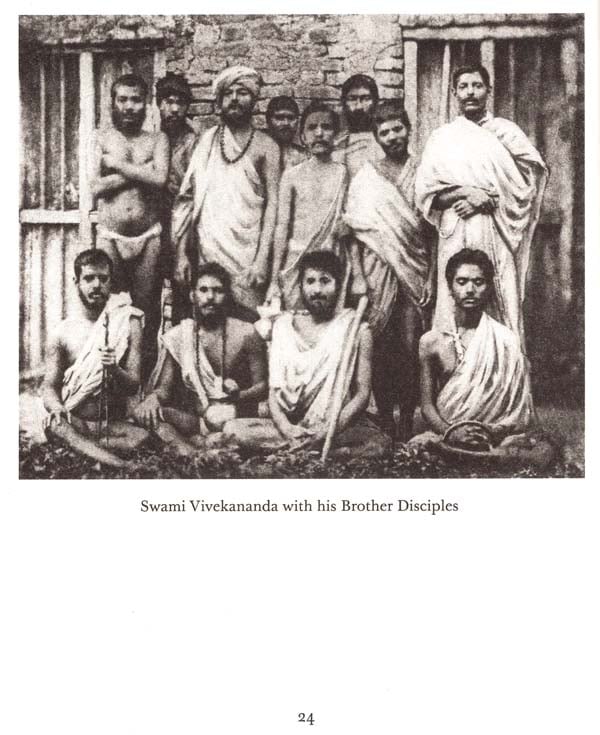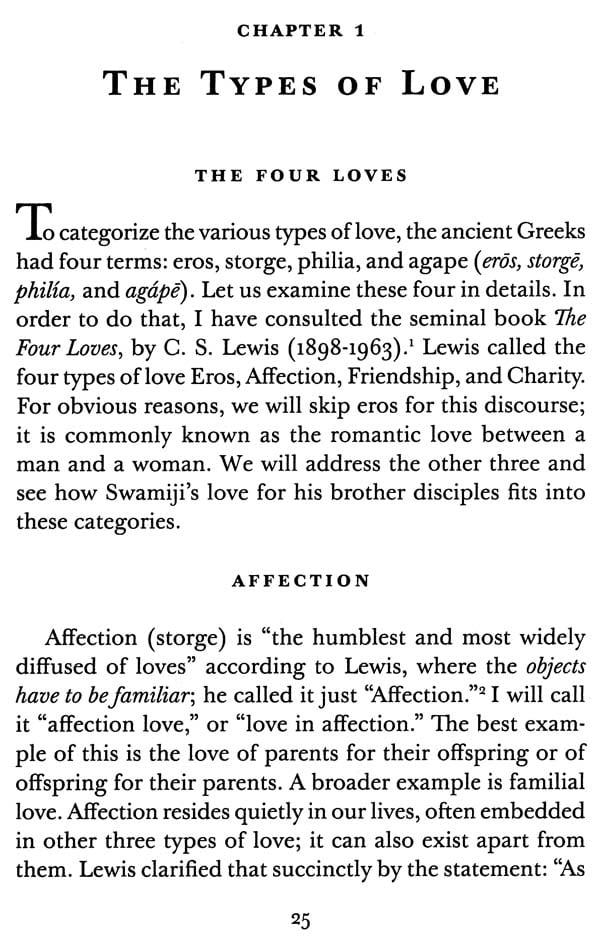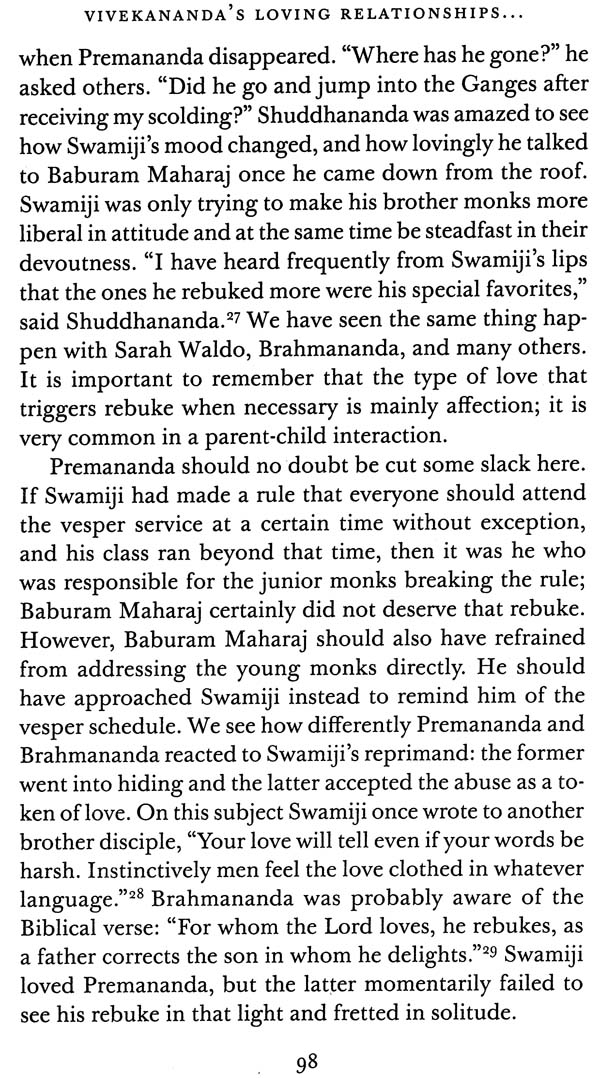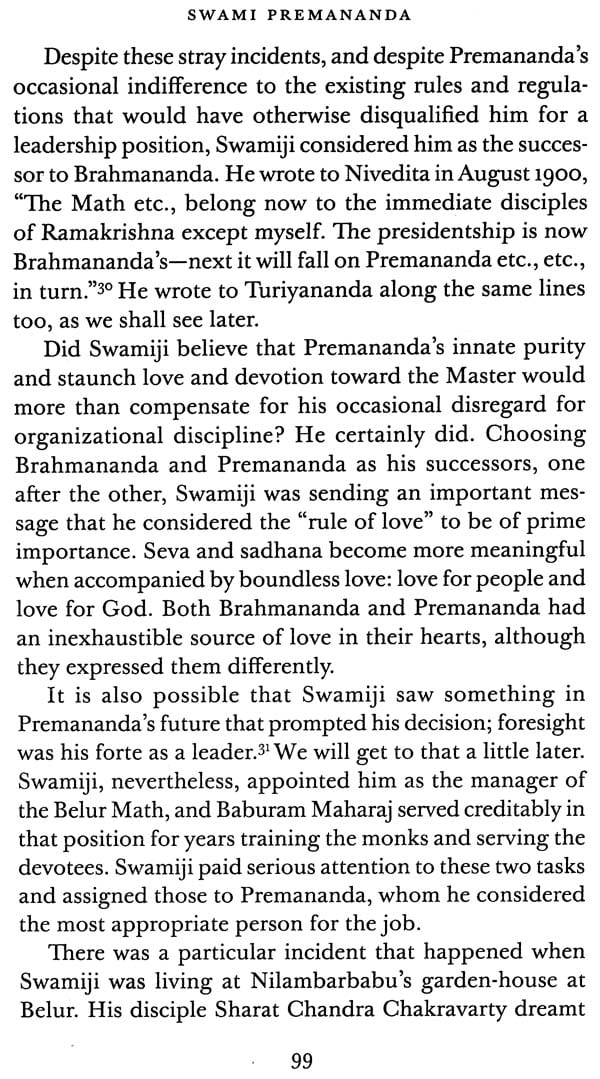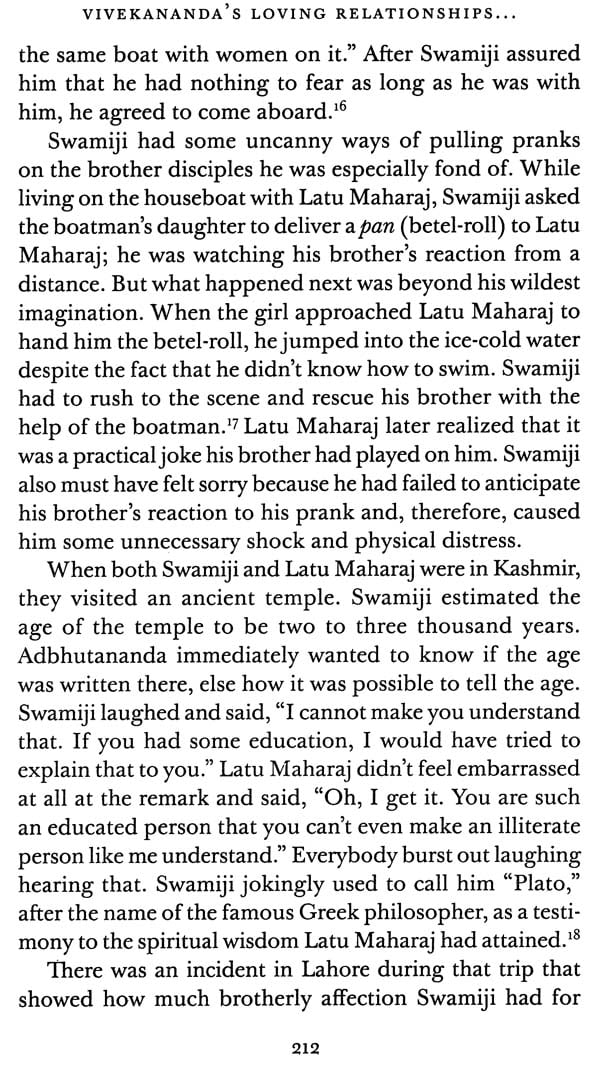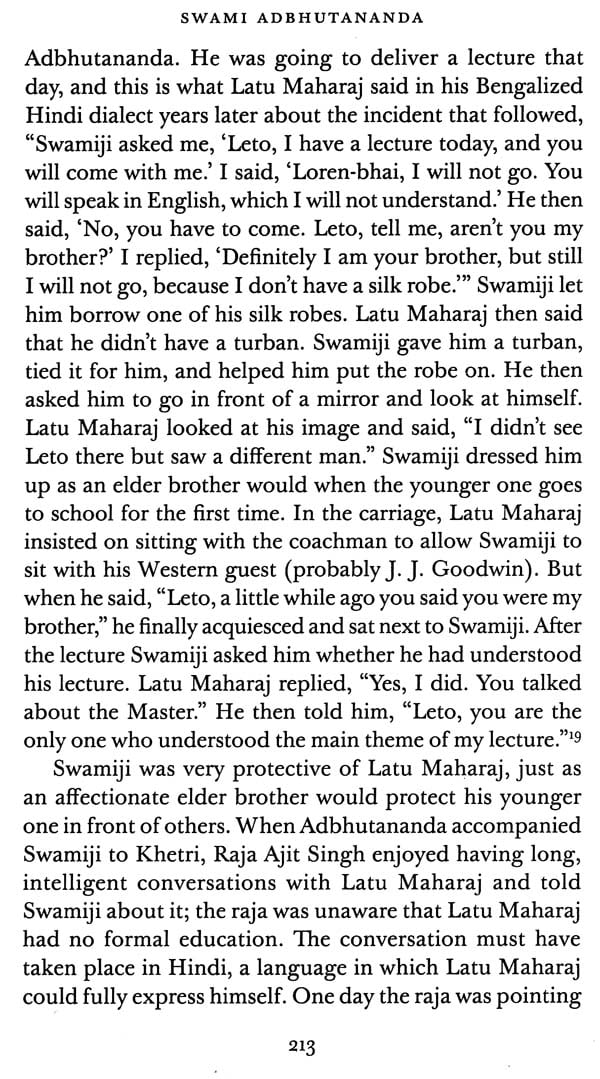
Vivekananda's Loving Relationships With His Brother Disciples
Book Specification
| Item Code: | NAY621 |
| Author: | Asim Chaudhary |
| Publisher: | ADVAITA ASHRAM KOLKATA |
| Language: | English |
| Edition: | 2019 |
| ISBN: | 9781733089005 |
| Pages: | 372 (18 B/W Illustrations) |
| Cover: | PAPERBACK |
| Other Details | 8.50 X 5.50 inch |
| Weight | 360 gm |
Book Description
In this latest book, the author has chosen a fascinating aspect of Vivekananda's life and work. It zeroes in on one set of the Swami's relationships.
This view reflects Swamiji's natural man-management wisdom, which in today's behavioural sciences language may be called emotional intelligence, an ability to manage emotions and guide thinking in a team environment in order to achieve organizational goals. This is a continuing challenge for every leader. If jealousies can arise even in spiritual work, how much more likely it is to occur in our secular work? The challenge for a Prime Minister or State Chief Minister is to appear to be accessible to every member of his cabinet. In family businesses, there is some subtle maneuvering between executives to be "closer" to the owners than to their colleagues. Even in professional firms, there is latent rivalry to be close to the Chairman, President, Divisional, Regional or Country Head, etc. The leader has to try to be psychologically equidistant from his team members, even while maintaining different task-related intensities of inter-action. Chaudhuri uses five criteria to evaluate the fifteen relationships: letters, comments, reminiscences, alignment, and engagement. In the modern context, a leader may be sensitive to the number of phone calls, emails, messages, meetings, visits, travel, etc. Like Swamiji, a leader has to utilise the distinctive strengths of each member, load some of them with current work, and prepare those with potential for future responsibilities.
Spiritually inclined readers will find this book a source of joy in reviving their memories of the lives and teachings of Sri Ramakrishna and his monastic disciples, the epochal leadership of Swamiji, and the dedicated service of the brother disciples to the Ramakrishna Mission Organisation.
My attempt to follow his footprints in the West has resulted in three books: Swami Vivekananda in Chicago-New Findings, Swami Vivekananda in America-New Findings and Swami Vivekananda in England and Continental Europe-New Findings. When I was not chasing his footprints, I focused on the qualities, attributes, and personality that made Vivekananda what he was-a "Wholesome Humanistic Character" and a leader-manager par excellence. That effort led to the book, entitled Vivekananda-A Born Leader. The book portrays Vivekananda as a leader, or a leader-manager, who used modern leadership and management principles, mostly intuitively. The next book, Swami Vivekananda-The Ultimate Paradox Manager, explains how he was able to manage the cognitive dissonances he faced in his life-some successfully, some not so successfully.
To overcome that feeling, I looked for the four methods by which one can reduce dissonance (as suggested by Festinger in his book): (1) by changing one's behavior or attitude, (2) by acquiring new knowledge or cognition, (3) by rationalization, or (4) by ignoring the whole thing. I did not choose Method 1, because that would mean I should stop writing the book. I also didn't use Method 4; I could not ignore it because I have a low threshold of tolerance for dissonance. I, therefore, tried to reduce my dissonance using a combination of Methods 2 and 3. I looked at the different types of love humans have for each other and characterized, on that basis, the types of love Swamiji bestowed upon each brother monk. This I did after studying his interactions with them, both verbal and written, and interpreting those in the light of that characterization. The analysis, supported by some views articulated by both Swami Vivekananda and Sri Ramakrishna, led to a new cognition: It is appropriate, and it falls within the purview of inductive research, to express in human terms the divine love that existed between Swamiji and his brother disciples (Method 2). I also tried to reduce my dissonance by vowing to analyze the relationship between them with as much love and reverence as a mortal could possibly impart on them (Method 3). We know that Swamiji was always for deliberation and analysis; and that has been my clarifying leap of faith to harmonize my dissonance.
I think Swami Vivekananda was misunderstood during his lifetime and under-understood later. This probably follows from Sri Ramakrishna's comment that "No one will ever be able to understand him [Swamiji] fully." I hope my humble findings will encourage others to delve into this infinite reservoir of human excellence called "Swami Vivekananda," and try to understand him better.
Book's Contents and Sample Pages

